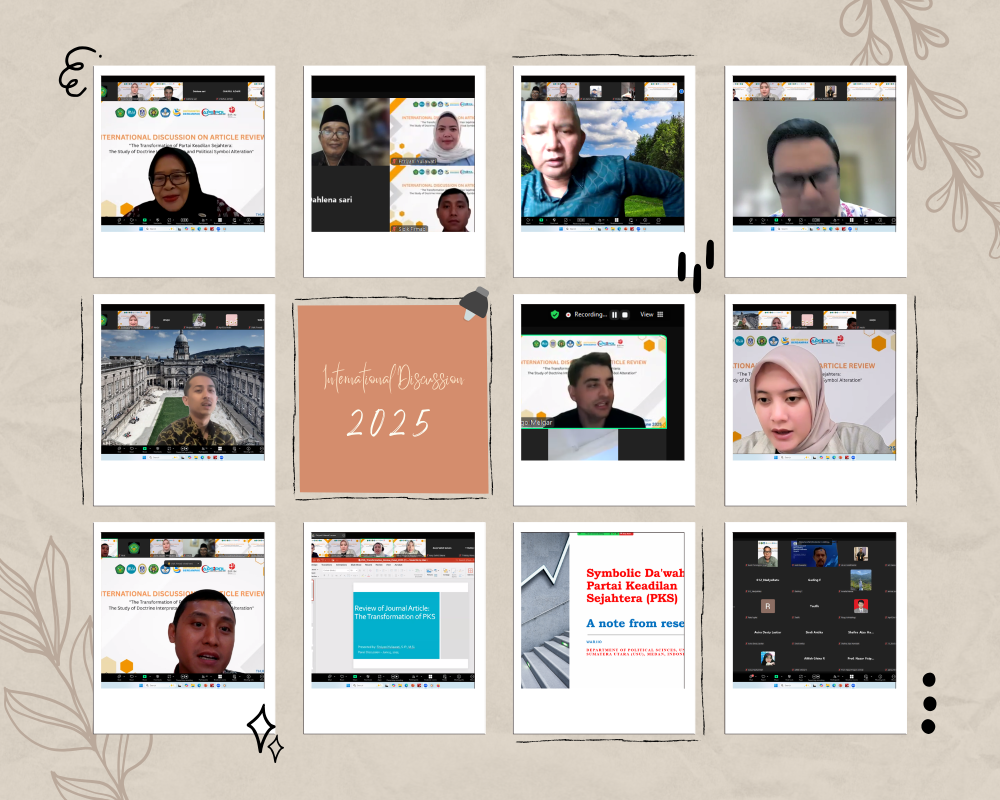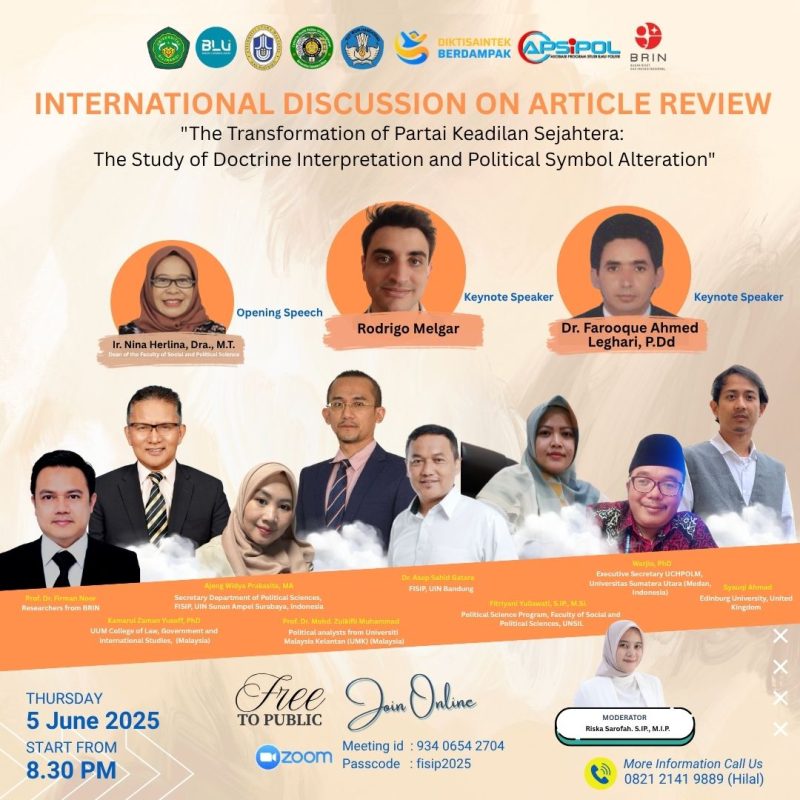
Tasikmalaya, June 11, 2025, The Department of Political Science, Faculty of Social and Political Sciences (FISIP), Universitas Siliwangi successfully hosted an International Discussion on Article Review via Zoom Meeting. The academic forum focused on the article titled “The Transformation of Partai Keadilan Sejahtera: The Study of Doctrine Interpretation and Political Symbols Alteration”, published in the Journal of Posthumanism, Volume 5, No. 6, 2025. The event was moderated by Riska Sarofah, S.IP., M.I.P., a political science lecturer at Universitas Siliwangi, who guided the entire discussion with professionalism and clarity.
The article, authored by Prof. Dr. Firman Noor (BRIN) and Warjio, Ph.D. (Universitas Sumatera Utara), examines the ideological and symbolic transformation of Partai Keadilan Sejahtera (PKS), one of Indonesia’s prominent Islamic political parties. The study explores how PKS has gradually shifted from its fundamentalist roots toward a more inclusive and nationalist orientation. This transformation is reflected in changes to its political doctrines, visual symbols (such as its logo, anthem, and march), and party narrative, all of which aim to align the party more closely with Indonesia’s national values, including Pancasila and Bhinneka Tunggal Ika.
The discussion opened with welcoming remarks from Ms. Nina Herlina, Dean of FISIP Universitas Siliwangi, followed by presentations from a distinguished lineup of speakers and panelists. Prof. Firman Noor elaborated on how PKS’s strategic transformation is driven by electoral pragmatism and a desire to broaden its appeal in a competitive democratic environment. Warjio, Ph.D., emphasized the party’s shift from formalistic to substantive Islamic values, reinforcing its commitment to national unity. Dr. Kamarul Zaman Yusoff from Universiti Utara Malaysia compared PKS with Malaysia’s PAS, highlighting PKS’s more progressive stance in embracing symbolic change. Fitriyani Yuliawati, M.Si., from Universitas Siliwangi, presented insights on the party’s local presence in Tasikmalaya and how its evolving ideology influences grassroots politics. Dr. Asep Sahid Gatara (UIN Bandung) praised the article for its thorough approach and explained how PKS maintains its Islamic identity while adapting to Indonesian pluralism. Ajeng Widya Prakasita, M.A. (UIN Sunan Ampel Surabaya) proposed future collaborative research on the role of women and Gen Z in political party transformation. Meanwhile, Ahmad Syauqi, a Ph.D. candidate at the University of Edinburgh and keynote speaker of the second session, provided a constructive critique, commending the article’s conceptual depth while encouraging further exploration of grassroots dynamics within the party.
The event attracted enthusiastic participation from scholars, students, and researchers across several countries including Indonesia, Malaysia, the United Kingdom, Uruguay, and Pakistan. The international interest reflected the growing relevance of Islamic political transformation studies in Southeast Asia. In her closing remarks, moderator Riska Sarofah announced the plan to initiate an International Research Consortium on Southeast Asian Islamic Political Parties, which will support long-term academic collaboration and joint publications. The discussion ended with a virtual photo session and a strong message of solidarity across institutions and nations. With hundreds of participants from multiple countries, this international discussion not only highlighted the dynamic evolution of Partai Keadilan Sejahtera (PKS) but also fostered meaningful academic exchange on the global stage.

